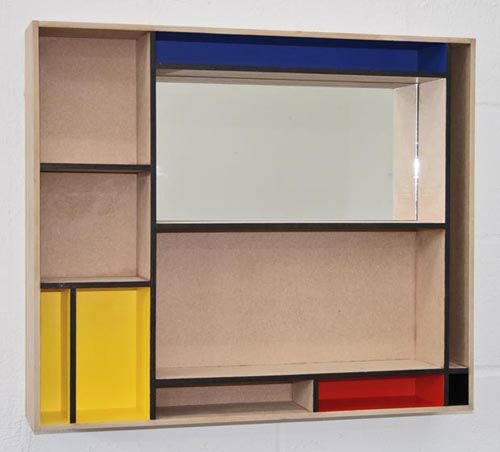Richard Owen
dal 16/10/2008 al 29/11/2008
Segnalato da
16/10/2008
Richard Owen
Another Roadside Attraction Gallery, London
Moods for Moderns. Owen aims to examine this de-signifying of the artwork by re-contextualizing it within a framework of contemporary discourse that examines the relationship of historical meaning and present contexts. In the appropriation of art in advertising, scholars suggest that art lends some of its cultural aura to the advertisement.

Richard Owen is an artist whose practice can be viewed as a series of
commentaries, reactions and references to contemporary culture, the observed
environment, fine art practice and art history. Working in painting, drawing
and sculpture his work is developed from a studied appropriation of images,
objects and ideas, that are re-imagined in new forms that compress time,
styles, genres and media. While often referencing the past, his work is not
nostalgic but uses visual quotations to ask questions about context, value
and significance. Richard's diverse approach to his practice is perhaps a
means of combating the idea of an artist as producer of identifiable
product, but it is this relationship between consumerism and culture that
unifies his work.
Commerce quotes from art history without recourse to the original political,
social and cultural meaning. Richard's work aims to examine this
de-signifying of the artwork by re-contextualizing it within a framework of
contemporary discourse that examines the relationship of historical meaning
and present contexts. In the appropriation of art in advertising, scholars
suggest that art lends some of its cultural aura to the advertisement. A few
qualitative studies suggest that not only does appropriation result in the
advertisement gaining value, but it also results in the artwork losing some
of its original aesthetic value. By referencing its own history and
acknowledging its devaluation through appropriation and critique, the
artwork allows itself to re-emerge with renewed cultural significance.
For Moods for Moderns at Another Roadside Attraction Gallery, Richard Owens
work uses Modernism as the starting point for investigation. He uses the
visual language of the 20th century movement' to produce a series of
motifs, reliefs and semi-functional objects that examine our relationship to
design, art and consumerism. Modernism, despite its regarded failure and
super-session has become a part of our visual world. Its ideology may have
gone but its aesthetic remains. By reinterpreting an instantly recognizable
language Richard's work playfully examines its influence on domestic
affluence and on the modern consumer¹s desire for informed luxury design and
decoration.
Preview 17th October 6.30 9pm
Another Roadside Attraction Gallery
Bayford Street - London
Open Friday to Sunday 12 6 pm
Free admission



